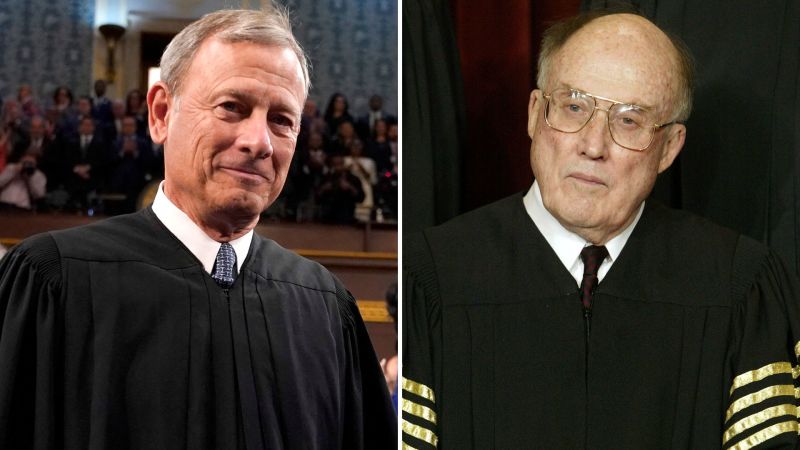Most judges who have considered President Donald Trump’s disputed tariffs have ruled against him. But when the Supreme Court hears his appeal next week, it may be influenced by a forceful dissenting opinion that highlighted a 1981 case from the Iranian hostage crisis.
Chief Justice John Roberts knows that case well. He helped produce it, as a 26-year-old law clerk to then-Justice William Rehnquist.
Rehnquist wrote the opinion in Dames & Moore v. Regan during a hectic week that June – a “mad scramble,” Rehnquist told his fellow justices in a memo. He caught viral pneumonia in the middle of writing the opinion. Roberts himself was in the last frantic days of his clerkship and trying to study for an upcoming bar exam.
The case tested financial aspects of a deal struck by President Jimmy Carter to use frozen Iranian assets as a “bargaining chip” to win the release of 52 American hostages. Among the laws Carter invoked was the International Emergency Economic Powers Act (IEEPA), which Trump is now citing to justify certain tariffs, including on imported goods from Canada, Mexico and China.
The Constitution gives Congress the power to set tariffs, and while IEEPA, which was passed in 1977, has previously been used to impose economic penalties, it was never used for tariffs. The law authorizes the president to “regulate … importation” of goods to deal with a national emergency arising from an “unusual and extraordinary threat” to the national security, foreign policy or economy of the US.
A seven-justice majority of the US Court of Appeals for the Federal Circuit rejected the Trum
Continue Reading on CNN
This preview shows approximately 15% of the article. Read the full story on the publisher's website to support quality journalism.
